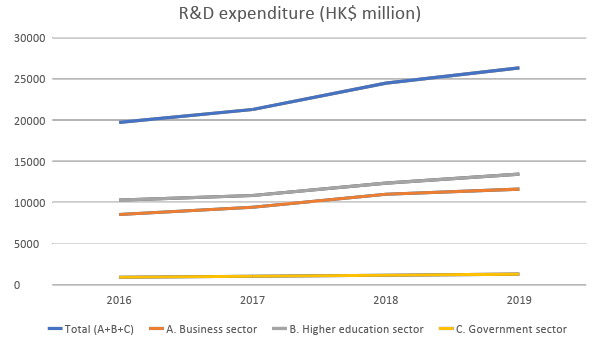General Research Landscape
Hong Kong has evolved from a small fishing village into a flourishing international financial centre, converging top talents and technologies from across the world. In line with the shifting era, Hong Kong continues to move towards a knowledge-based economy. That is why innovative research is a closely linked and inseparable part of society’s overall development.
What is the purpose of research? Research improves our lives and propels social progress – it is also an indicator of a society’s degree of civilisation. On the one hand, research creates and discovers new knowledge to satisfy humanity’s pursuit of knowledge and spirituality; on the other, research transforms and applies knowledge to improve our quality of life. Although the impact of research may not always be immediate, it is far-reaching and significant. Therefore, high-quality and continuous research can bring a strong impetus to society. Its impact goes beyond the academic world, bringing substantial contributions and positive influences to the economy, our community, culture, public policies or services, public health, the environment or our quality of life.
Research is not restricted to universities; it is closely related to our daily lives. For example, the development of technologies such as artificial intelligence, virtual reality, e-commerce, and robotics, which have been booming in recent years, have not only improved our lives but can also apply to different contexts. These are based on various well-developed research and studies. On the other hand, research helps us respond to special situations, such as understanding social situation, reacting to natural disasters, and preventing epidemics. At the same time, research facilitates cooperation between Hong Kong and other countries. Through exchanges on knowledge and technology, Hong Kong's research achievements are shared with the international community. As such, research helps us to advance our civilisation, understand the present and think about the future, and at the same time, reflects and enhances Hong Kong’s soft powers as an international city.


